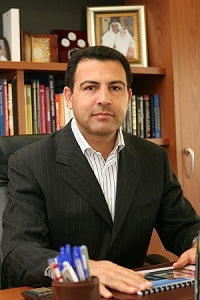
"Falling upon deaf ears" : the case of colloquial architecture
Author(s)
Mejel, Jalal B. (Jalal Bezee)
Abstract
World War II had instigated a strong national movement in The Middle East. In the Fifties and Sixties this region witnessed the end of colonialism in wide spread revolutions. The predominantly agrarian societies of The Middle East were mobilized to modernize. The institutions, with a specific understanding of modernity, mobilized a society with deeply ingrained tradition to change. This intersection of modernity and tradition had produced rich and unique cultural manifestation. A local formulation that captured the essence of this intersection was manifested. This thesis proposes this manifestation as "colloquial" in nature and will aim at recovering it. A reconstruction of the society's cultural history - institutional intervention: physical as in architecture and urban planning; social as in mass media and social programs- of the Fifties and Sixties is necessary to this recovery. Colloquial architecture had a space of aesthetic that was in tune with its cultural history. This has rendered the architectural expression constantly shifting, thus the difficulty of its recovery . This thesis will trace the particularities of colloquial architecture, as they break away from modern and traditional discourses, by alternatively assuming the position of a modernist and traditionalist. Particular methods will be employed to the various discursive fields that will be analyzed. The mode of analysis will be semiological in nature.
Description
Thesis (M.S.)--Massachusetts Institute of Technology, Dept. of Architecture, 1990.
Supervised by David Hodes Friedman.
Includes bibliographical references (p. 181-187).
Date issued 1990
Department Massachusetts Institute of Technology. Dept. of Architecture.; Massachusetts Institute of Technology. Department of Architecture
Publisher Massachusetts Institute of Technology